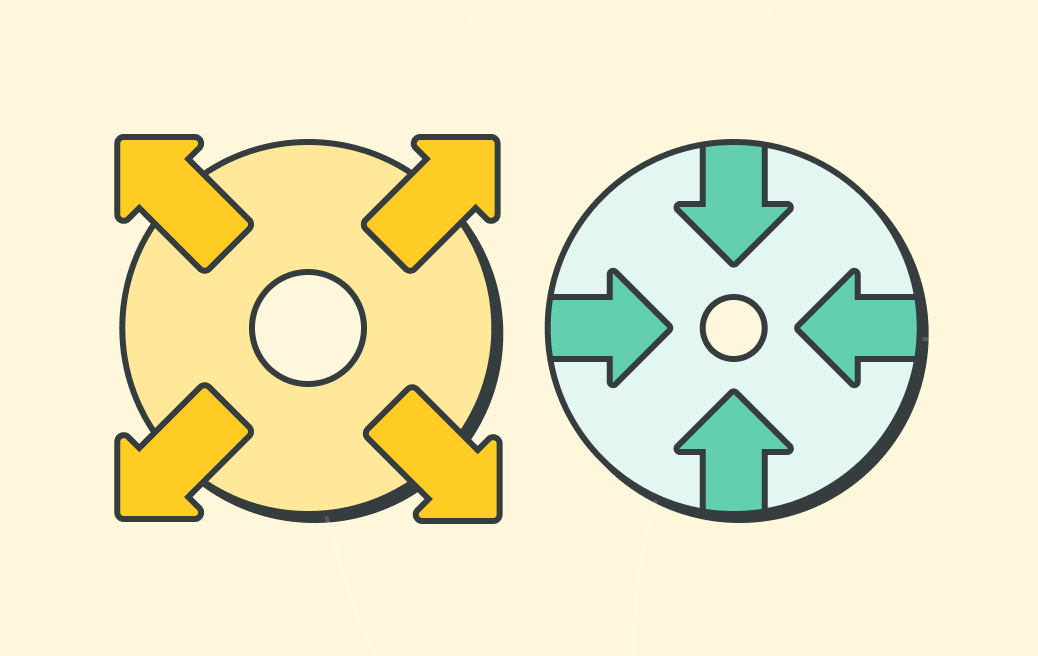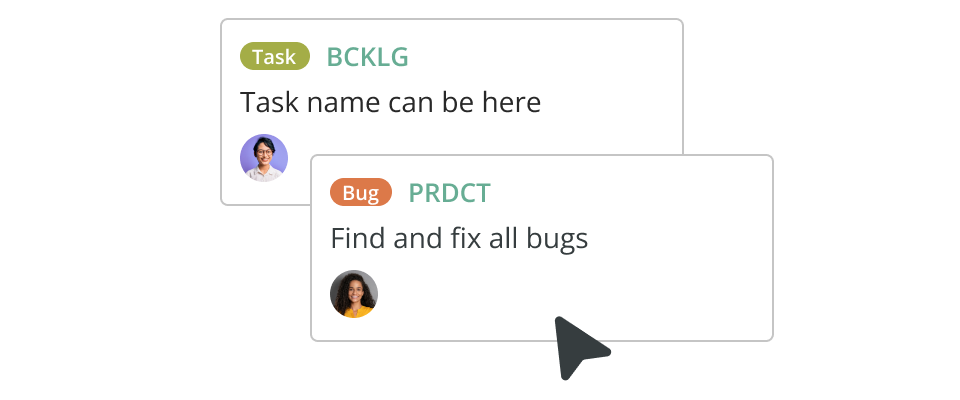Ever spent so long trying to make a decision that you end up making none at all? Welcome to the world of analysis paralysis — where endless options, second-guessing, and “just one more article” keep you stuck in decision limbo.
Whether it’s picking a movie, a career move, or a new project tool, in today’s world of endless information and options, analysis paralysis — the state of overthinking a situation so thoroughly that taking action feels impossible — is a trap easy to fall into, and harder to find your way out of.
What is analysis paralysis?
In stressful situations, the brain shifts its focus away from the task at hand and towards survival. You’ve probably heard of the phrase ‘fight or flight’ — but there’s a third, less talked-about response: freeze. This is what happens when the body gears up for danger, but the mind stalls. You’re flooded with stress signals, but instead of taking action, you freeze — unable to think clearly or move forward.
As the authors of a study in Science put it, stress “sharpens our senses, creates a state of fearful arousal, and strengthens our memories of stressful experiences but impairs our capacity for slow deliberation.” In other words, it prepares you to act, not think.
Great when you’re in physical danger and need to run. Not so useful when you’ve got to stay put and deliver a presentation.
Stress doesn’t just show up when we’ve got an important presentation, though. We can feel anxious in all kinds of situations — from making a big purchase to deciding what to have for dinner. And one common result of that stress? Analysis paralysis.
That’s when we overthink a situation so much that the pressure builds and we can no longer make a clear, rational decision. It’s rooted in the same fight, flight, or freeze response that causes our minds to go blank under stress.
Plenty of studies have looked at analysis paralysis, and unfortunately, the findings show it’s more than just a passing moment of indecision. The good news? Understanding how it works can help you make sense of those negative feelings and start to move past them.
First, let’s look at all the ways overthinking can hold you back.
1. Overthinking kills performance
High-pressure situations often lead to poorer performance. At worst, this can mean a total memory blank — but even mild stress can interfere with how we think and learn.
Studies show that even low levels of anxiety trigger distracting thoughts and flood the brain’s problem-solving center with cortisol, the stress hormone. It’s like two people shouting over each other — the brain struggles to send clear, coherent messages. And because survival instincts kick in first, fear tends to take over.
Unfortunately, it’s a vicious cycle: the more we overthink, the more anxious we become, and the harder it is to think clearly.
2. Stress lowers creativity
The brain can only focus on so much, and when it’s full of anxiety-induced distractions, things like creative thought go by the wayside. It’s a similar situation to the one described above: once your brain is full, there’s little cognitive energy left for anything else.
We’re at our most creative when we’re completely relaxed. It’s why writers, songwriters, entrepreneurs, and the like keep a notepad by their bed: their best ideas come to them when they’ve allowed their brain to switch off.
3. Overanalyzing makes us indecisive
Too much choice leads to mental exhaustion and indecision. This is called the paradox of choice.
When we’re given a limited number of things to choose from, we’ll give each one careful consideration. We then feel more satisfied with our choice because we’ve given it real thought. Conversely, give a person too many options, and they’ll be more likely to second-guess themselves and feel less satisfied overall.
We make decisions all day long and only have so much energy to apply to make those decisions. The more we have to make throughout the day, the less energy we’ll have later on, the more likely we are to be indecisive. Mark Zuckerberg and Steve Jobs understood this, which is why they chose the same outfit to wear every day: it’s one less thing to think about.
8 practical ways to stop overthinking and banish analysis paralysis
The first step to beating this is recognizing your own thought patterns. Your next step is learning to tame those out-of-control thoughts. Here are some science-backed methods to try out.
1. Do the hardest thing first
American author Mark Twain allegedly said that if the first thing you do in the morning is to eat a live frog, you can go through the rest of the day knowing the worst is behind you. Or in other words, do your toughest task first, and the rest of your to-do list doesn’t look so bad.
As we mentioned earlier, you only have so much mental energy to apply to decision-making, and as the day wears on, your ability to make good, long-term choices decreases.
Tackle those tough decisions first thing, and you’ll be more likely to deal with them effectively. If you do find yourself getting tangled up in a spiral of analysis paralysis later on in the day, put it off until tomorrow morning and start again.
2. Build good habits
Habits — things we do instinctively, like washing our face and making that first cup of coffee in the morning — need very little thought. This lowers the cognitive load needed to perform each task.
If you repeat tasks over several days or months, they’ll soon become habits.
Start small. Try organizing your outfit and lunch for work the night before; create a to-do list at the end of each day, rather than at the start of the next one.
As you build on these, you can add more significant, demanding tasks to your daily ritual, like exercising, going to bed earlier, and spending less time on your phone. The more good habits you have, the more energy you’ll have for other things.
3. Apply a filter to your life
We are bombarded with information — whether that’s phone notifications, adverts, or a colleague tapping you on the shoulder.
And then there’s our own input on top of this: We compulsively check emails and spend hours scrolling. This adds to our mental exhaustion, but also contributes to the very issue of what’s colloquially known as brain rot; “the supposed deterioration of a person’s mental or intellectual state, especially viewed as the result of overconsumption of material (now particularly online content) considered to be trivial or unchallenging”.
The combination of cognitive overload, stress, and phone addiction is a perfect storm for analysis paralysis. So what should you do?
The trick here is to find your focus and remove anything that doesn’t contribute to completing your task. Turn off your emails, close unnecessary tabs, and move to a quiet place to work. Lock your phone away, and resist the urge to see a few minutes of mindless scrolling as a treat.
4. Take the plunge before you feel ready
There’s a lot to be said for preparation. But there is such a thing as preparing too much. There’s always going to be more you can do to research, collect, and analyze, and if you’re nervous about starting, then it’s tempting to turn preparation into a form of procrastination.
While it may feel like you’re doing something useful, you’re actually wasting time that would be better spent making that first move. Instead, take that first step before you feel ready. The rest will fall into place.
Psychologist Dr. Susan David emphasizes the value of action: ”Courage is not the absence of fear; courage is fear walking.” Taking action, even when uncertain, can help overcome paralysis.
5. Don’t worry about making the wrong decision
Often, we’re afraid to make the first move because we’re worried about making the wrong decision. We inflate this ‘wrong’ choice to monumental proportions until we lose sight of all the possible outcomes and focus on the bad. Then the dreaded analysis paralysis rears its head.
In reality, a poor decision often isn’t catastrophic, just as a good choice doesn’t guarantee unhindered success. As psychologist Barry Schwartz, in The Paradox of Choice, notes: “The secret to happiness is low expectations.” So accepting that not all decisions will be perfect can alleviate the fear that leads to analysis paralysis.
Remember this next time you can’t make a choice, and you’ll feel much calmer and able to act.
6. Give yourself a deadline
Parkinson’s Law states that “Work expands so as to fill the time available for its completion.” Setting deadlines can create a sense of urgency, helping you overcome indecision.
Beating indecision by setting your own deadline is a good option, but this is easier said than done. To truly trick yourself into completing a task by a self-imposed time, you need to tell other people about it.
Tell your boss, coworkers, social media friends, and mum — tell everyone. That way, someone else is holding you accountable. Yes, it might add a little extra stress, but it also gives you a support network while making you much more likely to get things done.
7. Take baby steps first
Analysis paralysis is worst when you’ve invested a lot in a project. So, one way to minimize the pressure is to take an iterative approach.
Start new projects with a minimum viable product — aka, a pared-back, simplified version of your product or service. Release it to a small group of people, gather their feedback, apply it to the next round, and do the whole thing again. Eventually, you’ll not only have overcome your analysis paralysis — you’ll have something that’s much more refined and suited to your target audience (even if that audience is just you).
8. Phone a friend
How many times have you asked a friend what dish they’re choosing from the menu before making your own decision? Running an idea past someone else does wonders. It gives us a fresh perspective and makes us feel happier with our choice because we have someone we respect who validates our ideas.
Next time you’re grappling with a decision or you can’t make sense of something, run it past a friend or colleague. Even something as casual as a quick text or email can do wonders for relieving analysis paralysis stress. Remember: a problem shared is a problem halved – and the same goes for making decisions.
Why structure beats stress every time
Another smart way to sidestep analysis paralysis is to use project management software, like Backlog. These tools help cut through the clutter by organizing tasks into clear steps, assigning deadlines, and offering a visual overview of your workload.
You don’t have to juggle everything in your head, or freeze when plans change or you hit a crossroad — just follow the plan, or opt for your contingency. Less mental load means fewer decisions to stress over, and more momentum to keep things moving. Give Backlog a try for free today!





